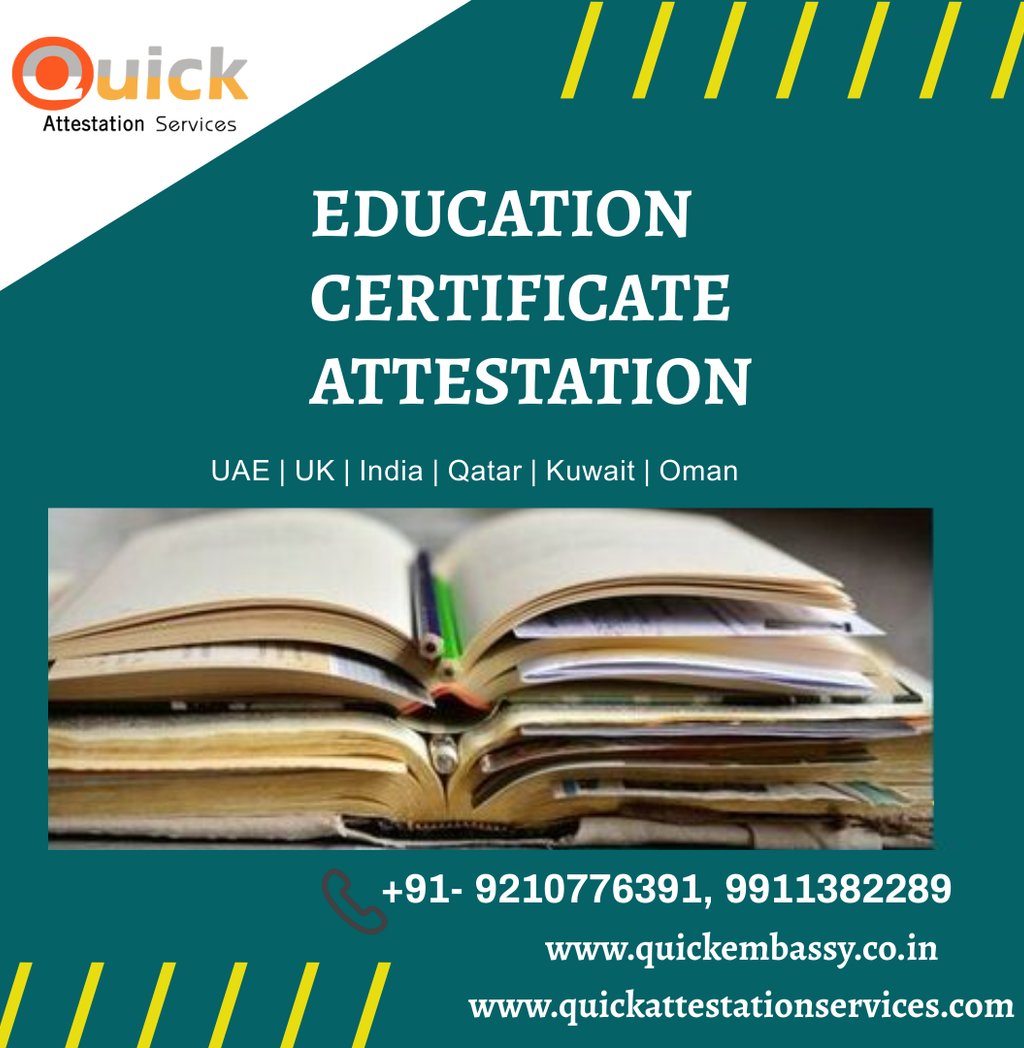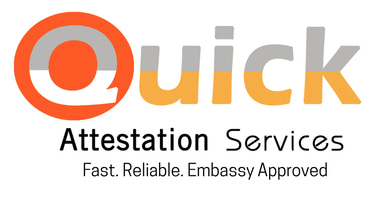Document Authentication: State Attestation Guide
Explore our comprehensive guide on document authentication, covering everything from state attestation to the MEA process. Ensure your documents are properly authenticated for legal and official use.
11/18/20257 min read


Introduction to Document Authentication
Document authentication is a crucial process that verifies the legitimacy of documents, ensuring they are recognized and accepted by various authorities, organizations, or governments. This verification is particularly significant in contexts such as immigration, education, and international business, where the authenticity of documents directly impacts an individual's ability to work, study, or relocate across borders. Understanding the nuances of document authentication is essential for individuals seeking to navigate through bureaucratic procedures.
The fundamental aim of document authentication is to prevent fraud and ensure that documents like degrees, birth certificates, marriage certificates, and corporate records meet the necessary legal standards. Different jurisdictions may have unique requirements for authentication, making it imperative for individuals to understand the specific procedures relevant to their documents and the intended purpose. For example, in the immigration process, authorities often require authenticated documents to ascertain the applicant's identity, educational background, or professional qualifications.
Document verification typically involves several steps, including state attestation and endorsement by recognized authorities. State attestation often represents the initial phase of the authentication process, where documents are affirmed by local state officials. Following this, certain documents may require further validation from the Ministry of External Affairs (MEA) or other relevant governmental agencies. This multi-tiered system is designed to add layers of verification, thereby enhancing the credibility and acceptance of the documents in international contexts.
By engaging in the document authentication process, individuals can mitigate the risk of bureaucratic challenges that may arise from the non-acceptance of unauthenticated documents. This guide will delve into the specifics of each phase, from state attestation to MEA authentication, illuminating the critical steps required for achieving comprehensive document validation.
Understanding State Attestation
State attestation serves as a crucial step in the document authentication process, validating the authenticity of documents within a specific state before they can be acknowledged by other entities, particularly for use abroad. This procedure involves a thorough review by designated state-level authorities, ensuring that the documents in question are legitimate and comply with the prevailing regulations. Generally, state attestation is necessary for vital documents such as birth certificates, marriage certificates, academic records, and corporate papers.
The process of obtaining state attestation typically involves several key steps. Initially, the individual or organization seeking attestation must ensure that their documents are correctly issued and meet the standards required by state authorities. This may involve gathering supplementary documents that provide context or proof of legitimacy, such as identification, previous certifications, or notarized copies. After compiling the necessary documentation, individuals can submit their papers to the appropriate state department, which may vary depending on the nature of the document. For instance, educational documents are often submitted to the state department of education, while vital records may be directed to the health department.
The fees associated with state attestation can vary based on the type of document and the jurisdiction in which the attestation is sought. Additionally, processing times can fluctuate, ranging from a few days to several weeks, depending on the state’s workload and policies. It is advisable to verify the specific requirements and procedures directly with the relevant state authority to avoid any unexpected delays. This proactive approach helps to ensure a smooth attestation process, paving the way for subsequent stages of international document authentication and recognition.
The Importance of State Attestation
State attestation plays a vital role in the document authentication process, serving as a formal verification of various documents—be it personal, educational, or professional. In an increasingly interconnected world, the requirements for document verification have grown in significance, particularly when it comes to international applications, such as visa processing, job offers abroad, or enrolling in foreign educational institutions. By ensuring that all documents are adequately attested at the state level, individuals can establish and affirm the credibility of their submissions, ultimately facilitating smoother transactions and interactions.
The process of state attestation involves an official examination of documents by authorized state bodies, confirming their authenticity and verifying the legitimacy of the data contained within them. This level of scrutiny adds a layer of assurance that is often required by foreign institutions or government entities. In many cases, unverified documents can result in delayed processing times or even outright rejections, leading to increased stress and financial implications for those involved.
Moreover, failing to obtain proper state attestation can have dire consequences. If documents lack the necessary verification, individuals may face complications such as legal disputes or the denial of permits and services. This is particularly crucial for educational certificates, employment letters, and marriage licenses, which may be scrutinized when pursuing opportunities overseas. Consequently, the importance of state attestation cannot be understated, as it serves as a first line of defense in validating documents for international use.
In essence, state attestation is an indispensable step in the document authentication process. It not only enhances the integrity and acceptability of documents but also minimizes the risk of complications that may arise from inadequate verification. As global mobility becomes more prevalent, understanding and executing the state attestation process is essential for anyone intending to utilize their documents internationally.
Overview of MEA Authentication
The Ministry of External Affairs (MEA) in India plays a crucial role in the authentication of various documents intended for international use. MEA authentication serves as a validation process that ensures the credibility of documents for overseas purposes. This process is distinct from state attestation, where the latter is generally confined to state-level verification of educational, personal, and commercial documents. While state attestation confirms the legitimacy within the jurisdiction of a state, MEA authentication extends this validation to an international arena, thereby providing an additional layer of endorsement that facilitates global acceptance.
The significance of MEA authentication cannot be overstated, particularly in an increasingly interconnected world where documents need to be recognized beyond national borders. It is often essential for individuals and organizations looking to validate documents such as marriage certificates, degree certificates, birth certificates, and company registration papers. These authenticated documents can be vital when dealing with foreign governments, educational institutions, or financial entities. Furthermore, they can expedite the legal processes involved in visa applications, permanent residency, and other official dealings.
Global recognition of the MEA authentication process further supports its importance. Many countries require an MEA stamp or certificate to verify the authenticity of documents from India. This acknowledgment manifests the quality and reliability of Indian documentation practices on a global scale, making MEA authentication not merely a bureaucratic formality but a necessary step prior to utilizing documents abroad. As international norms evolve, having MEA-authenticated documents can significantly ease transactions and facilitate smoother interactions across borders.
The Process of Transitioning from State Attestation to MEA Authentication
Transitioning from state attestation to Ministry of External Affairs (MEA) authentication involves a systematic approach to ensure that documents are recognized for international use. The first step in this process is to gather all the necessary documents that require MEA authentication. These typically include educational certificates, commercial documents, and personal identification papers that have already undergone state attestation.
Once you have assembled the documents, the next step is to prepare the submission for MEA. It is advisable to check the specific requirements on the MEA website or consult with an authorized agency, as these requirements may vary based on the nature of the documents and their intended use abroad. Generally, you will need to submit your attested documents along with a duly filled application form, which can also be acquired from the MEA's official resources. Ensure that you have multiple copies of each document to facilitate the processing.
In terms of timelines, the MEA authentication process typically takes anywhere from 3 to 10 working days, depending on the volume of applications and specific circumstances surrounding your submission. Therefore, it is prudent to initiate this process well in advance of any deadlines you may face.
There are common pitfalls to avoid during this transition. For instance, failing to ensure that the documents are correctly attested by the state authority can lead to delays or rejection of the MEA authentication. Moreover, incomplete applications or negligence in complying with the stipulated requirements can also hinder progress. Hence, it is crucial to meticulously follow guidelines and maintain clear communication with the MEA or facilitating agency.
To ensure a smooth transition, double-check all documents before submission, maintain a checklist of required items, and follow up on the application status periodically. By adhering to these steps and suggestions, you can effectively navigate the process of moving from state attestation to MEA authentication, ensuring your documents meet the necessary legal standards for use abroad.
Challenges in Document Authentication and How to Overcome Them
The process of document authentication, whether it involves state attestation or Ministry of External Affairs (MEA) approval, can present various challenges that individuals must navigate. One prominent issue is administrative delays, which can severely hinder the timely completion of essential tasks reliant on document verification. The reasons for such delays often lies within bureaucratic inefficiencies and high volumes of applications, particularly during peak times. Individuals facing these delays should consider anticipating busy periods and submitting applications well in advance of any deadlines to mitigate this challenge.
Another common hurdle in the document authentication process is the potential for document rejections. Such rejections typically stem from inaccuracies in documentation, improper formats, or missing supplementary information. To counter this, applicants should ensure they closely review all requirements outlined by the relevant authorities prior to submission. This may include checking the authenticity of signs and seals and ensuring that documents comply with the specified formats, thereby enhancing chances of successful authentication.
Confusion regarding the requirements can also complicate the document authentication process. Vague guidance or inconsistent information from different sources may lead applicants to make errors that can delay the process. To minimize confusion, individuals should seek information directly from official resources or consult professionals specializing in document authentication. Utilizing service providers that represent a wealth of knowledge regarding the laws and requirements can also streamline the process, as they can provide clarity on the necessary steps to take.
In summary, successfully navigating the challenges of document authentication is essential for timely completion of legal and professional tasks. By preparing well, ensuring document accuracy, and seeking reliable guidance, individuals can effectively overcome the common obstacles encountered during state attestation and MEA authentication.
Conclusion and Final Thoughts
Understanding the process of document authentication from state attestation to the Ministry of External Affairs (MEA) is crucial for individuals and entities looking to ensure their documents hold validity across borders. This comprehensive guide has elucidated the various steps and requirements necessary for successful authentication, emphasizing the importance of accuracy and diligence throughout the procedure. Whether embarking on an educational venture abroad, pursuing employment opportunities, or undertaking any transaction requiring official documentation, being familiar with authentication processes is imperative.
One cannot overlook the significance of following the correct steps meticulously. The chances of encountering delays or complications significantly increase when documents are incorrectly authenticated. Consequently, it is advisable to keep accurate records, understand the specific requirements dictated by the destination country, and stay informed about any changes in laws regarding document authentication. Ensuring that all documentation adheres to the legal standards of concerned authorities can prevent unnecessary interruptions during your related processes.
As you navigate the complexities of document authentication, consider seeking additional resources for further assistance. Numerous government websites and official consulate directories provide updated information on processes, fees, and prerequisites pertinent to each step of authentication. Additionally, professional services specializing in document authentication can offer valuable guidance for those who find the process challenging or time-consuming. By utilizing available resources and being proactive in your approach, you can ensure that your documents are authenticated accurately and efficiently, ultimately facilitating your endeavors abroad.
